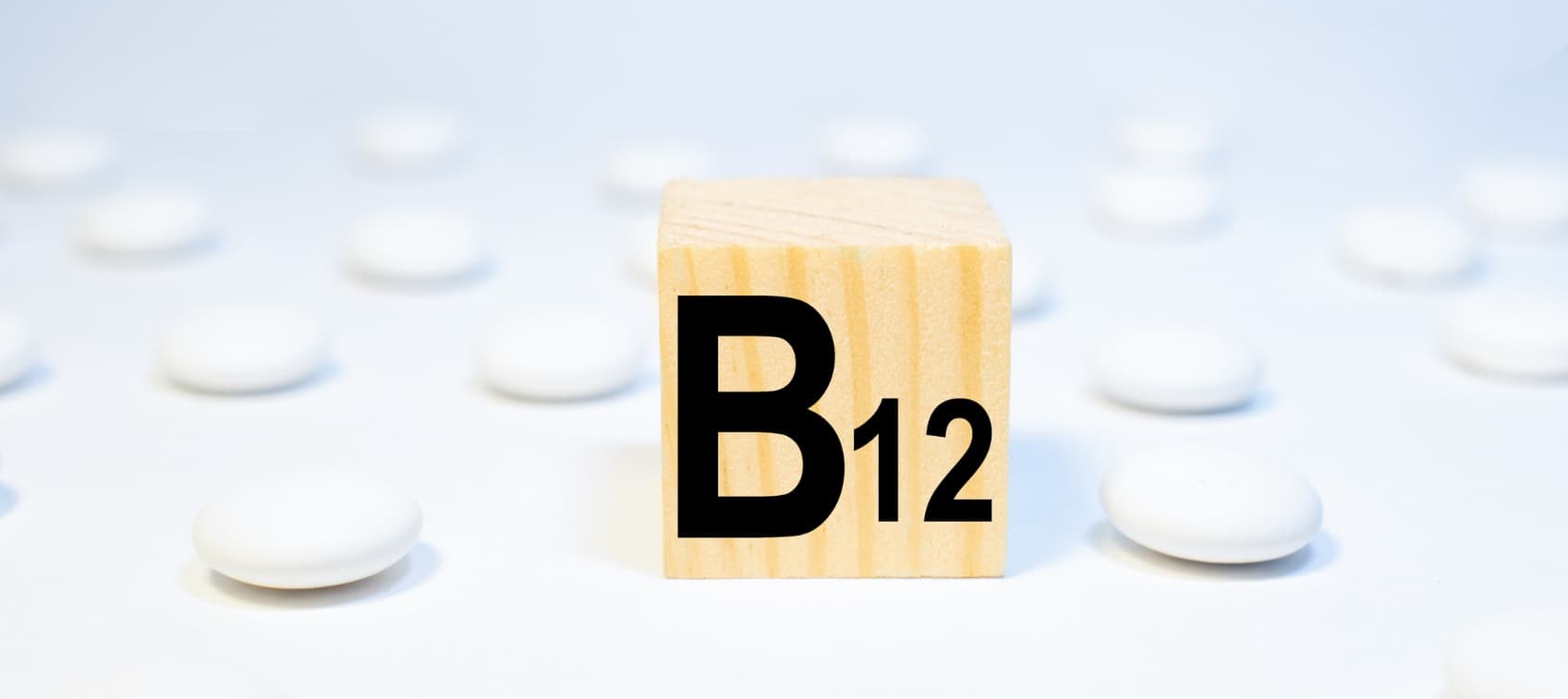
The truth about our bodies as they age is that they just don’t do some things as well as they used to, but then we get better at other things with age as well. One of the things our bodies start to fall short on is nutrient absorption.
As you can imagine, if you aren’t absorbing nutrients as well as you should, it’s harder to maintain the levels you need. Low levels of essential nutrients lead to deficiencies which are common among seniors.
Some of the most common deficiencies for seniors are:
- Calcium
- Vitamin D
- Magnesium
- Vitamin E
- B vitamins
B vitamins are particularly beneficial to our overall health. The B vitamins serve our bodies by helping to maintain healthy blood cells, participating in the production of energy, and to preserve nerve functions.
There are various types of B vitamins, and vitamin B12, in particular, can help prevent degenerative diseases associated with aging and even types of anemia when the right levels are present in our bodies.
Knowing we need the right levels is great, but what about the nutrient absorption issues?
Nutrient absorption impacts levels of vitamin B12. Aging causes our bodies to produce less stomach acid and other compounds. When nutrients enter the body, many of them have to bond with an acid or another compound in order to be properly absorbed.
B vitamins are no exception. So, let’s look at what vitamin B12 is, what you can expect if you experience a deficiency, the benefits of vitamin B12, the proper dosage, and how you can get the recommended dosage of vitamin B12 for seniors.
You’ve made it to your golden years, so they ought to be among the best years of your life. Vitamin deficiencies shouldn’t hold you back when there are steps you can take, with your doctor’s approval, that can make it better.
What is vitamin B12?
Cobalamin is an essential vitamin that our bodies need to function properly, and most of us know it as vitamin B12. It can be found in various foods and in synthetic form, but like other vitamins, our bodies need it but don’t produce it.
The B12 vitamin is an active player in the creation of red blood cells and the production of nerve tissue. The nerve tissue is responsible for transmitting communications from the brain to the body’s cells. So, it is a very important vitamin.
Vitamin B12 is produced in nature.
Vitamin B12 is naturally produced by certain bacteria. In order to make supplements, bacterial cultures are allowed to ferment to produce the vitamin B12. The B12 is then harvested from the bacteria in order to be added to the supplements.
Soluble in water, vitamin B12 is distributed in the body. It travels in the bloodstream to support cell functions. In order to be processed, vitamin B12 needs acids and enzymes found in the stomach and small intestine.
After it has been absorbed, it is stored in the body.
The primary storage location is the liver. Enough vitamin B12 is stored in your body to meet your vitamin needs for years, even without consuming more. Yet, deficiencies do happen.
So, how can you tell if you’re not getting enough?
What Does a Vitamin B12 Deficiency Look Like?
A vitamin B12 deficiency can happen as a senior, but knowing what to look for can help you talk to your doctor if you’re concerned about your vitamin B12 levels.
Anemia
Anemia occurs when a person’s red blood cell count is low. Red blood cells carry oxygen in the blood. The reduced presence of oxygen can cause a person to feel cold. Additionally, anemia can cause fatigue or shortness of breath. Anemia can also cause a yellowing of the skin known as jaundice.
Cognitive Impairment
Because of its role in nerve tissue production, a vitamin B12 deficiency can cause damaged nerve cells in the brain to go unrepaired. This damage can cause trouble with memory, irritability, and other cognitive impairments in the elderly.
Neuropathy
Neuropathy is experienced when nerve cells aren’t functioning properly throughout the body. Neuropathy can present with tingling, numbness, poor balance, and difficulties walking.
Without a diagnosis of these issues, it’s important to watch for less specific issues like:
- Fatigue
- Memory loss
- Shortness of breath
- Poor balance
Keep in mind that a vitamin B12 deficiency can progress very slowly and go unnoticed easily. Symptoms are common for some seniors, so they can often be attributed to something else or another condition.
Risk factors for developing a vitamin B12 deficiency as a senior include:
- Adherence to a vegetarian diet
- Trouble with stomach issues
- Pancreatic issues
- Intestinal difficulties
- Medications that reduce stomach acid production taken over a long period of time
It is possible for seniors to develop a deficiency without any of these risk factors, but they’re still important to understand lest they exacerbate the problem.
So, we know the body needs vitamin B12. It’s not fun for anyone if a deficiency develops, but what else is in it for us? Does the right amount of vitamin B12 come with benefits? Yes! Let’s look at them.
Benefits of Vitamin B12
There are lots of benefits to vitamin B12, but you want to know how it helps seniors. There are plenty of benefits specific to this age group.
Here are some things proper vitamin B12 levels may do for you:
- Contribute to the generation of cell growth
- Boost mental clarity or cognition
- Support bone health
- Support the immune system
- Help with heart health
WIth all these benefits, you’ll want to know the right dosage of vitamin B12 for seniors.
Proper Dosage
Because the body stores vitamin B12 in your liver, not much is needed for healthy adults. Only 2.5 micrograms are needed to meet the recommended daily allowance.
Typically, the diets of people in the United States averages about 5 to 7 micrograms daily. Multivitamins can contain 12 to 25 micrograms of vitamin B12. So, what are we worrying about, right?
Seniors lose their ability to absorb vitamins like B12. Low levels of stomach acid, medications, excessive alcohol consumption, and other issues like surgeries and health conditions can all contribute to a diminished ability to absorb the needed amounts of B12.
So, if you’re waiting to discuss symptoms with your doctor or just want to be sure you’re reaping the benefits of having the right amount of vitamin B12 in your body, you may find yourself wondering how to incorporate it into your diet.
How to Include Vitamin B12 in Your Diet
While the body may not make vitamins, occasionally it stores them for later use. B12 is stored in the liver, so over time it absorbs vitamin B12 from your diet.
So, where does B12 come from?
- Yogurt
- Milk
- Cheese
- Fish
- Fortified cereals
- Beef
- Pork
- Poultry
- Ham
- Lamb
As you can see, consuming enough naturally-occurring vitamin B12 would be difficult for people who adhere to a vegetarian diet and next to impossible without supplements for those who adhere to a vegan diet.
Even if you don’t have dietary restrictions that make it hard to get vitamin B12 naturally, you can still experience a deficiency that needs to be addressed.
As with any addition to your regimen, you should talk it over with your doctor before starting, but supplements can be a great way to get the vitamins you’re missing back to normal levels.
People who are extremely deficient may be given intramuscular shots or high-dose oral supplements. Intramuscular shots are good for avoiding absorption problems because they bypass the stomach and small intestine.
High-dose oral supplements work to raise the absorption levels by simply combating the poor absorption rate with levels so high that enough is bound to find a way through. The shots contain amino acids to help allow for absorption.
Your doctor will know the proper dosage if high-dose supplementation is needed.
Summary
As seniors, it’s unnecessary to suffer from the struggles of aging like lower nutrient absorption.
B12 is an important nutrient for our bodies. A lack of stomach acid can make it hard to get as much as we need, even though we need very little on a daily basis. That’s why it’s so important that we are attentive to our bodies and the signs and symptoms it gives us.
Not only can we avoid deficiencies by listening to our bodies, but we can also experience benefits of overall wellness when we get the right dosage of the vitamins our bodies need.
Your golden years deserve to be remembered, so deficiencies that can impact our memory and balance are of great importance for seniors.
So ask your doctor about vitamin B12 before any symptoms you notice start to worsen.


